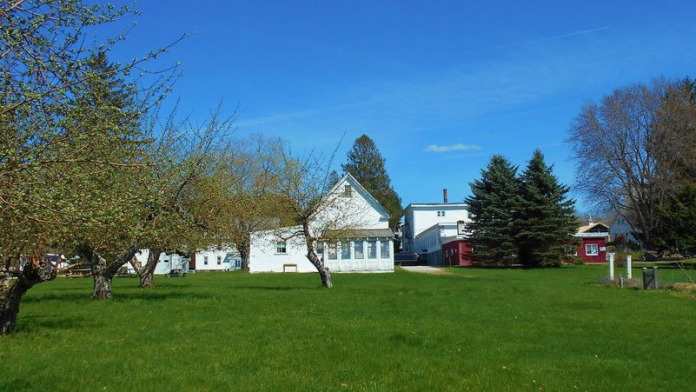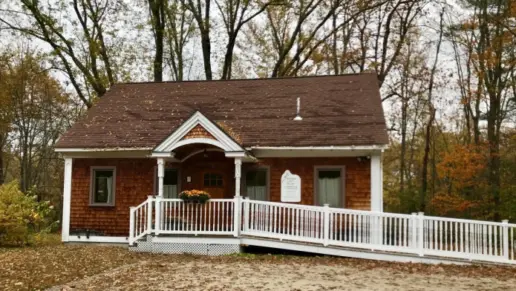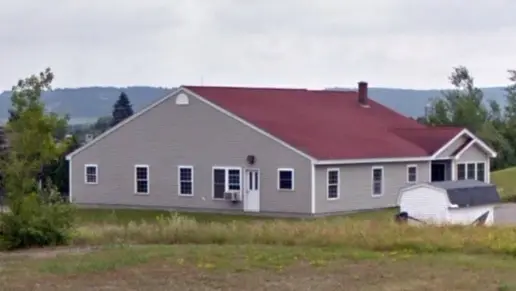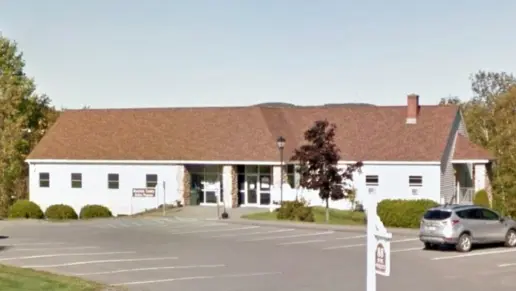The people who work in this place are very rude and make everything a problem. They didn't make me feel at all comfortable with the service I received, I really want to make changes in my life that is why I decided to look for another place to receive professional help.
About York County Shelter Programs, Inc.
York County Shelter Programs is an Alfred, Maine, alcohol and drug rehab providing community based services for adults and families experiencing homelessness. They have inpatient rehab, outpatient care, and aftercare for alcohol, drugs, opioids, and mental health. Clients can access evidence based treatment, medication assistance treatment (MAT), housing assistance, a food pantry, vocational training, and more.
Their 3-6 month residential program provides a structured environment for people in the criminal justice system. Clients live onsite while participating in individual and group counseling, family support groups, mentoring, case management, and 12 Step groups. They provide GED and higher education assistance, art therapy, exercise classes, and pet therapy.
Clients can receive outpatient services in tandem with shelter. They may offer individual and group counseling to help clients recognize and change the behaviors contributing to their situation. Clients may also access services, such as 12 step groups, case management, vocational training, and educational classes.
Their compassionate team provides ongoing counseling and support for clients who complete an initial program. They also assist clients in finding permanent housing.
Clients with alcohol or opioid addictions may participate in MAT coupled with therapy to manage cravings while promoting long term recovery.
York County Shelter Programs is available to clients at no cost. Still, you may be peer referred for paid medical, mental health, or addiction recovery services. Major insurance companies, including UnitedHealthcare, Cigna, Humana, ComPsych, Magellan Health, and others, may cover some costs of these services. Out of network benefits typically vary. Contact your provider to verify your insurance.
Latest Reviews
Rehab Score
Gallery

Location
Other Forms of Payment
Private insurance refers to any kind of healthcare coverage that isn't from the state or federal government. This includes individual and family plans offered by an employer or purchased from the Insurance Marketplace. Every plan will have different requirements and out of pocket costs so be sure to get the full details before you start treatment.
Self-pay involves paying for treatment out of your own pocket. You can use savings or credit, get a personal loan, or receive help from family and friends to fund your treatment. If you don't have insurance or your insurance plan doesn't cover a specific program, self-pay can help ensure you still get the care you need.
Financial aid can take many forms. Centers may have grants or scholarships available to clients who meet eligibility requirements. Programs that receive SAMHSA grants may have financial aid available for those who need treatment as well. Grants and scholarships can help you pai for treatment without having to repay.
Sliding scale payments are based on a client's income and family size. The goal is to make treatment affordable to everyone. By taking these factors into account, addiction recovery care providers help ensure that your treatment does not become a financial burden to you or your family, eliminating one barrier to care.
Medicare is a federal program that provides health insurance for those 65 and older. It also serves people under 65 with chronic and disabling health challenges. To use Medicare for addiction treatment you need to find a program that accepts Medicare and is in network with your plan. Out of pocket costs and preauthorization requirements vary, so always check with your provider.
Medicaid is a state based program that helps lower-income individuals and families pay for healthcare. Medicaid covers addiction treatment so those enrolled can use their coverage to pay for rehab. When a program accepts Medicaid the client often pays very little or nothing out of their own pocket.
Addiction Treatments
Levels of Care
Treatments
The goal of treatment for alcoholism is abstinence. Those with poor social support, poor motivation, or psychiatric disorders tend to relapse within a few years of treatment. For these people, success is measured by longer periods of abstinence, reduced use of alcohol, better health, and improved social functioning. Recovery and Maintenance are usually based on 12 step programs and AA meetings.
Drug rehab in Maine is the process of helping someone learn how to live without the use of substances. Professional staff provide treatment to address the various issues of addiction. Methods often involve medication, counseling, and evidence-based therapies.
A combined mental health and substance abuse rehab has the staff and resources available to handle individuals with both mental health and substance abuse issues. It can be challenging to determine where a specific symptom stems from (a mental health issue or an issue related to substance abuse), so mental health and substance abuse professionals are helpful in detangling symptoms and keeping treatment on track.
Opioid rehabs specialize in supporting those recovering from opioid addiction. They treat those suffering from addiction to illegal opioids like heroin, as well as prescription drugs like oxycodone. These centers typically combine both physical as well as mental and emotional support to help stop addiction. Physical support often includes medical detox and subsequent medical support (including medication), and mental support includes in-depth therapy to address the underlying causes of addiction.
Programs


Clinical Services
Cognitive behavioral therapy in Maine is a form of talk therapy. It involves a limited number of sessions during which the therapist helps the client become aware of negative thinking and replace it with positive thought patterns. This in turn helps the individual respond to challenges in healthier ways.
Group therapy is any therapeutic work that happens in a group (not one-on-one). There are a number of different group therapy modalities, including support groups, experiential therapy, psycho-education, and more. Group therapy involves treatment as well as processing interaction between group members.
In individual therapy, a patient meets one-on-one with a trained psychologist or counselor. Therapy is a pivotal part of effective substance abuse treatment, as it often covers root causes of addiction, including challenges faced by the patient in their social, family, and work/school life.
The goal of motivational interviewing in Maine is twofold. First is to increase your motivation to change. Second is to help you make a commitment to change. The process involves allowing you to express your views and concerns out loud. The therapist will listen affirm and encourage you to make the changes you desire in your life.
The therapist engaged in family therapy work with all family members to understand the impact addiction has had on the family unit and individual members. They help develop collective strategies for recovery and facilitate open discussions to help families build resilience and improve interactions. This helps to support their loved one's path to recovery.
Amenities
-
Private Rooms
Contact Information
147 Shaker Hill Rd
Alfred, ME 04002


